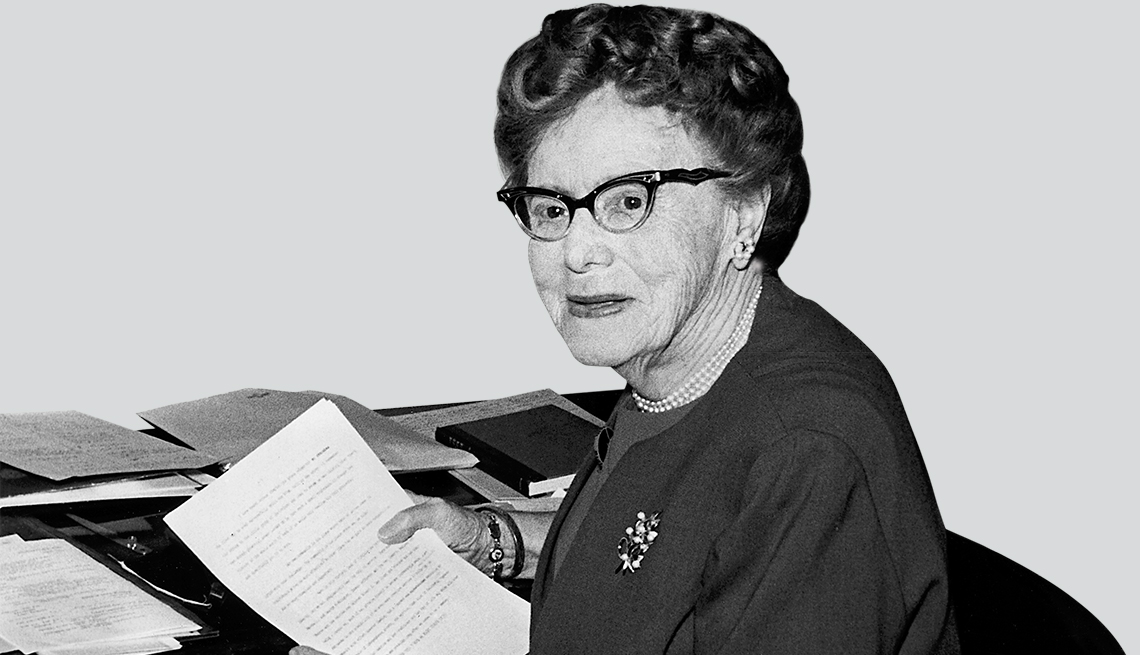Staying Fit
| It all began one Saturday, when Dr. Ethel Percy Andrus received a telephone call from a shopkeeper 30 miles outside of Los Angeles. He had read in the newspaper that Dr. Andrus had been appointed to the California Retired Teachers Association’s committee on retired teachers’ welfare, and asked if she could check up on an old woman in his neighborhood who needed food, eyeglasses and teeth. He provided the woman’s address.
Here is the rest of the story, as told later by Dr. Andrus herself.
“It was a cold, drizzly day, such as sometimes comes to Southern California, and so I was the more surprised and dismayed — and a bit curious — to learn that the ‘lady of the house’ was away on an outing, and that the house itself was a bungalow of ample proportions. As I sloshed back to my car, I was puzzled. The man who had phoned, at some expense to himself, didn’t seem like a likely one to play a practical joke on a stranger, and so I crawled back from under the wheel and again interrupted the television program of the man next door.


AARP Membership— $12 for your first year when you sign up for Automatic Renewal
Get instant access to members-only products and hundreds of discounts, a free second membership, and a subscription to AARP the Magazine.
“In shocked surprise he assured me that the lady was not elderly and certainly not in need. Then, just as he was dismissing me, he recalled that there was an old woman who lived next door, ‘in back ,’ in the chicken house. Perhaps she was the one I sought.
“I knocked on the sagging door of the windowless shed and assured the answering voice that I had come to say ‘Howdy’ — one teacher to another — and I asked if I might not come in. I waited for the door to open and when it did, my hostess slipped through and closed the door behind her. Stockily built, with short grey hair, in an old coat much the worse for both age and wear, a woman withered of skin, with sunken cheeks but with the bluest and merriest of eyes, she looked me over — smiling at me, putting me at my ease, while she inquired of my errand.
“‘Just a friendly visit,’ I said, and I told her my name. Curiously enough, she knew it, and more curiously, I recognized hers when she told me it and recalled her reputation as a Spanish teacher of some distinction.

































































